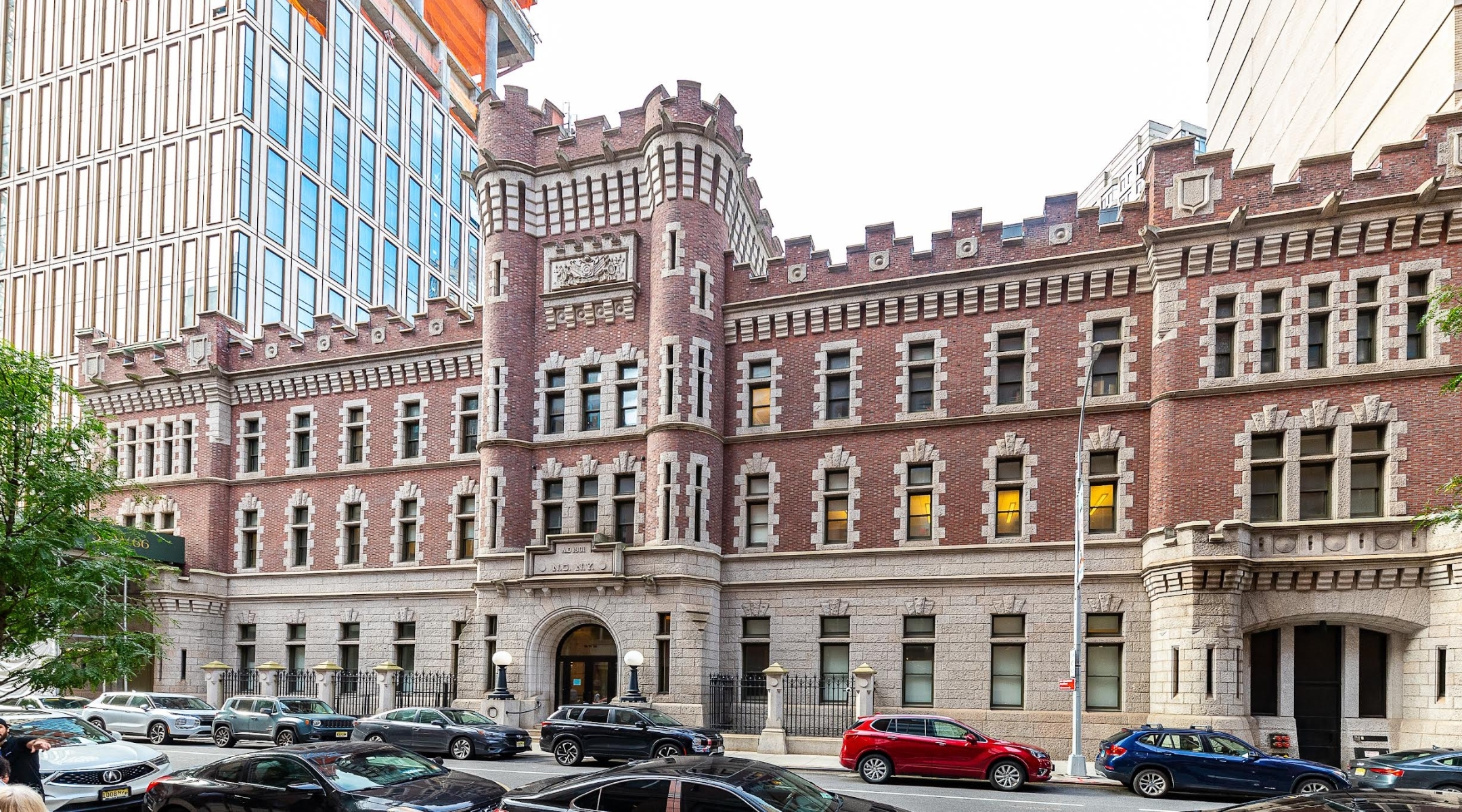Following the $75 million sale of its building in Greenwich Village, Hebrew Union College-Jewish Institute of Religion, the Reform movement’s rabbinical seminary and leading educational institution, will relocate to the Upper West Side.
As the New York Jewish Week reported last week, HUC sold its longtime downtown building to New York University, which already owns more than 70 buildings in the Greenwich Village area. On Friday, HUC revealed that it has purchased 56 West 66th Street, the former First Battery Armory.
HUC purchased the landmarked building — which was previously owned by the American Broadcasting Company — for $32 million, according to a spokesperson. The back-to-back transactions will yield the seminary approximately $43.5 million, which president Andrew Rehfeld said will go toward renovating the uptown building as well as toward an endowment for scholarships.
“The new building is roughly 60% of the size of our current building,” Rehfeld said. “It allows us to operate a smaller facility that’s more appropriate to our needs and really serve our students, faculty and staff much better with a state-of-the-art facility that is in an exciting location.”
The Upper West Side building — built between 1901 and 1904 and used as an armory for the First Battery of the New York National Guard — was converted to a TV studio in the 1970s, and then into an office building in 2012.
Following renovations, the building, which is listed on the National Register of Historic Places, “will be reconfigured to include state-of-the-art technology and infrastructure for in-person and hybrid learning, as well as a library, beit midrash [house of study], and areas for prayer, community events, and exhibitions,” HUC-JIR said in a statement.
The relocation is also “a homecoming of sorts,” according to the statement, as it is mere blocks away from where the Jewish Institute of Religion had its original home on West 68th Street. (HUC and JIR, “a pluralistic institution of higher Jewish learning,” merged in 1950; HUC-JIR has occupied its West 4th St. location, adjacent to NYU, since 1979.)
The spruced-up new digs will make “a statement about who we are and the importance of our work to everyone who just walks in,” Rehfeld said.
For now, Hebrew Union College will remain at its current Greenwich Village location until 2027, when renovations uptown are expected to be complete. Even after it relocates uptown, collaboration between HUC and NYU — such as reciprocal course registration and library privileges — will continue.
In 2022, HUC-JIR began phasing out the rabbinical ordination program at its original Cincinnati campus. The following year, the seminary announced it would discontinue four other academic programs: the doctoral and master’s degree programs in Jewish studies based in Cincinnati; the doctoral program in interfaith ministry in New York; and the master’s program in educational leadership in Los Angeles. At the time, Rehfeld cited “financial constraints” and declining enrollment as the reason.
Rehfeld attributes the need for a smaller campus to HUC-JIR’s dwindling enrollment size — there are currently 44 students enrolled in the New York rabbinical program. (Between 2007 and 2022, enrollment at HUC’s three American campuses fell by 37%, with the largest drop, 60%, in Cincinnati.) This downward trend is not unique to the Reform rabbinate — the Conservative movement has seen a decline in rabbinic school enrollment as well.
At the same time, Rehfeld said the school has seen significant growth in its online programs, such as the executive master’s program in Jewish education and in the virtual rabbinical pathway, the latter of which currently has 10 students.
“We really think that the shift to this location is a shift to a building that’s more appropriate to our needs,” Rehfeld said.
Moving uptown also means the campus will be among more than a dozen synagogues and exciting Jewish life, as well as in the proximity of Juilliard, Lincoln Center, and other cultural life — a boon to the cantorial students, especially.
“It’s in the heart of both Jewish and cultural New York,” Rehfeld said. “We’re just so excited about it.”
The New York Jewish Week brings you the stories behind the headlines, keeping you connected to Jewish life in New York. Help sustain the reporting you trust by donating today.





